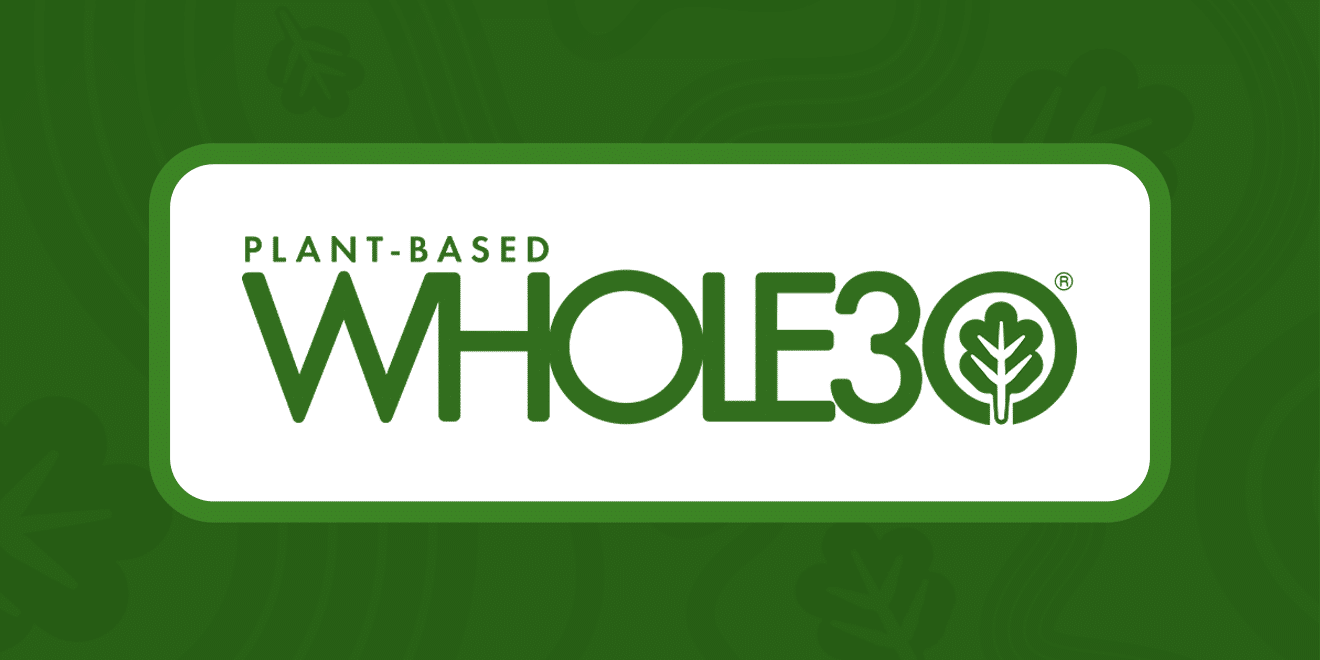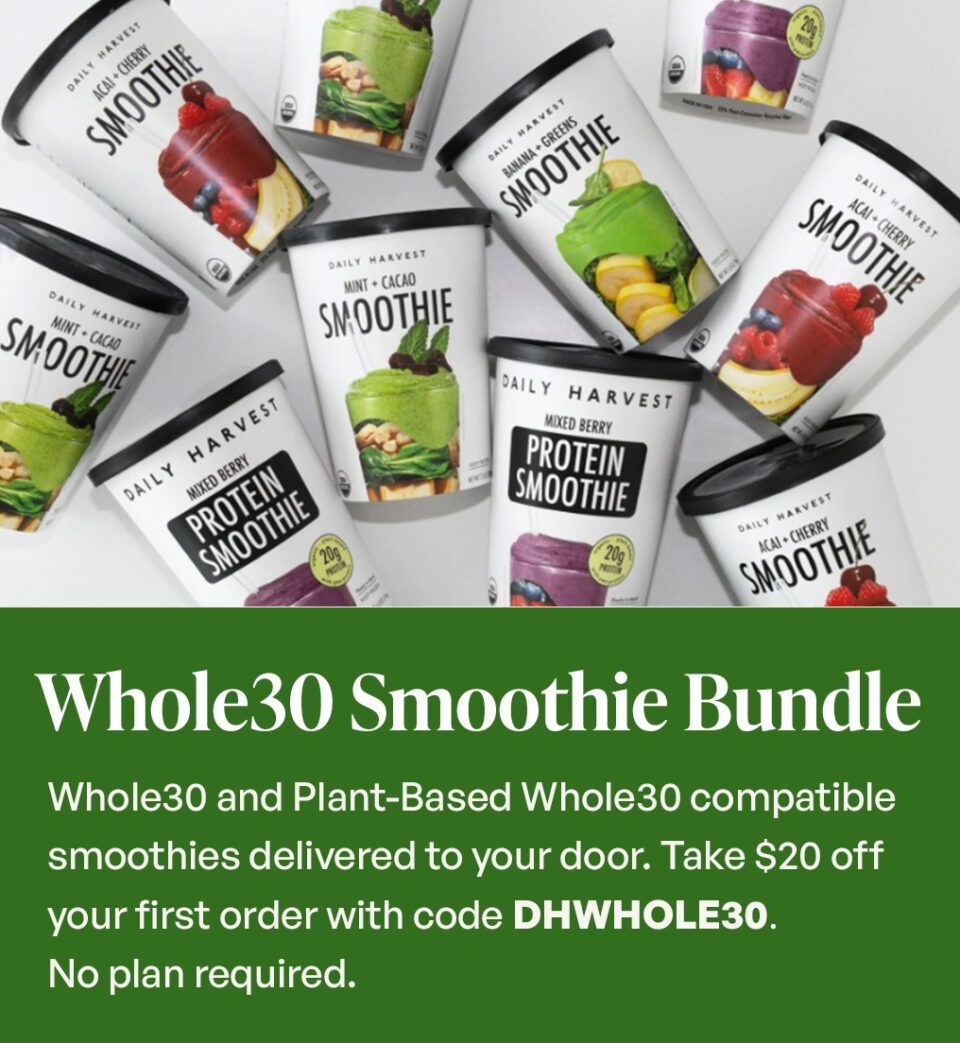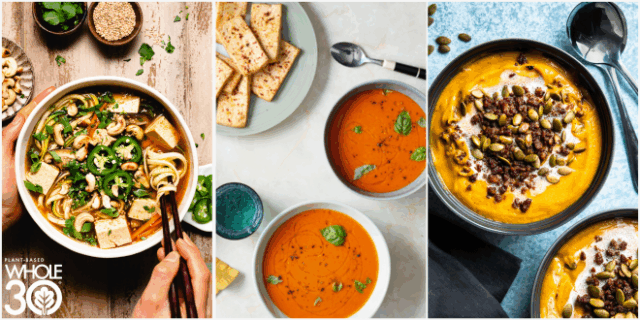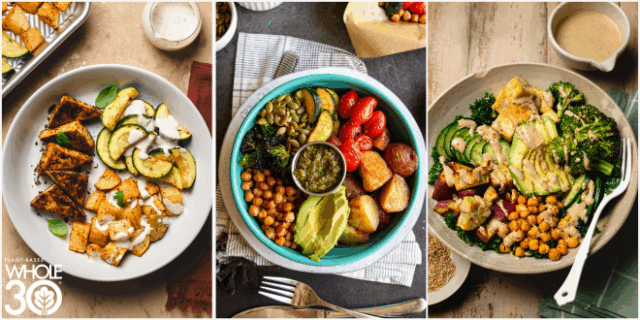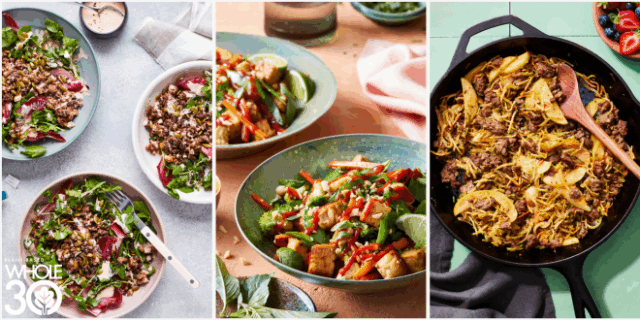If you don’t eat meat—or know someone who doesn’t—you’ve probably heard the age-old question: “where do you get your protein”? Believe it or not, proteins can come from animal-based sources, like meat. But they can also come from plant-based sources like tofu, beans, lentils, nuts, and seeds.
And that’s good news for plant-focused eaters everywhere. Because protein is a nutrient that every person has to have in their day. It’s so important that it is classified as a macronutrient—a group of three nutrients (protein, carbohydrates, and fat) your body needs a lot of. That’s because the human body uses these nutrients to provide energy.
Since they’re so important, I wanted to walk you through some of the important questions about plant-based protein. Find answers that will help you better understand everything from how plants can have protein to the best plant-based protein sources.
What is Protein?
Proteins help build nearly every structure in the body and are found—literally—from head to toe. They are responsible for structures like our hair, skin, muscles, and nails. And proteins play a role in smaller, but very important, activities like enzymes and antibody functions.
There are 20-plus building blocks called amino acids that create proteins. They’re strung together to provide structure throughout your body. Alone, amino acids can’t be stored by the body. Instead, they are made inside you, or altered by other amino acids.
Nine of the 20-plus blocks, called “essential amino acids” are essential because they must come from food and can’t be made in any other way. The nine essential amino acids (with a few examples of where to find them in plant-based foods) are as follows:
- Phenylalanine (pumpkin seeds, lentils, and soybeans)
- Valine (soybeans, white beans, and pistachios)
- Tryptophan (sunflower seeds, peas, and soybeans)
- Threonine (soybeans, lentils, and flaxseeds)
- Isoleucine (lentils, sunflower seeds, sesame seeds, and soybeans)
- Methionine (hemp seeds, soybeans, and kidney beans)
- Histidine (pumpkin seeds, chickpeas, lentils, and soybeans)
- Leucine (soybeans, lentils, and beans)
- Lysine (soybeans and lentils)
A protein that contains all nine of the essential amino acids is a complete protein.
Plant-based protein
To those newer to plant-based eating, it might seem a little odd to think how a bean has protein. But it’s there. Protein found in plants comes from nutrients in the soil that the plant grows and develops. Minerals and compounds in the soil help some plants form amino acids, which string together to make a plant-based protein.
Although plants have protein, it doesn’t mean all plant foods are equal in the protein department. Some foods, like tofu, beans, and lentils, will have a higher protein content than vegetables like broccoli or spinach.
Are plant-based proteins complete?
Some plant-based proteins—like those in tofu, tempeh, and other soy products—are complete since they contain all nine essential amino acids. Other plant-based proteins may be missing one or more of the essential amino acids, making them incomplete proteins.
Although they lack all the essentials, incomplete proteins are not lesser or need to be avoided. In fact, incomplete proteins are just as important since they offer variety to your diet. Not all your proteins have to be complete. So don’t focus too much on eating only complete proteins because all plant proteins have something to offer.
Eating plant-based proteins that don’t contain all nine essential amino acids means you need a variety of proteins throughout your entire day, though. For example, if you have roasted chickpeas at lunch, opt for a different protein like red lentils in your dinner meal.
Most of the time picking a variety of plant-based proteins during the day provides your body with all the essential amino acids you need. If you have concerns about protein intake, speak with a registered dietitian to help you find and meet your needs.
The best plant-based protein sources
Picking the best plant-based protein might depend on your taste buds! Variety is key. But from a nutrition standpoint, proteins like tofu, tempeh, beans, and lentils are some of the best options to enjoy during your Plant-Based Whole30.
Not only are they loaded with protein, but those options also provide micronutrients—including iron and calcium—which are necessary for all types of eaters. So the best answer is a simple one.
The best plant-based protein source is one you love eating and enjoy cooking the most. Find your favorites by trying a variety of different proteins to see which ones top your list.
Learn more about plant-based protein options for your Plant-Based Whole30.

